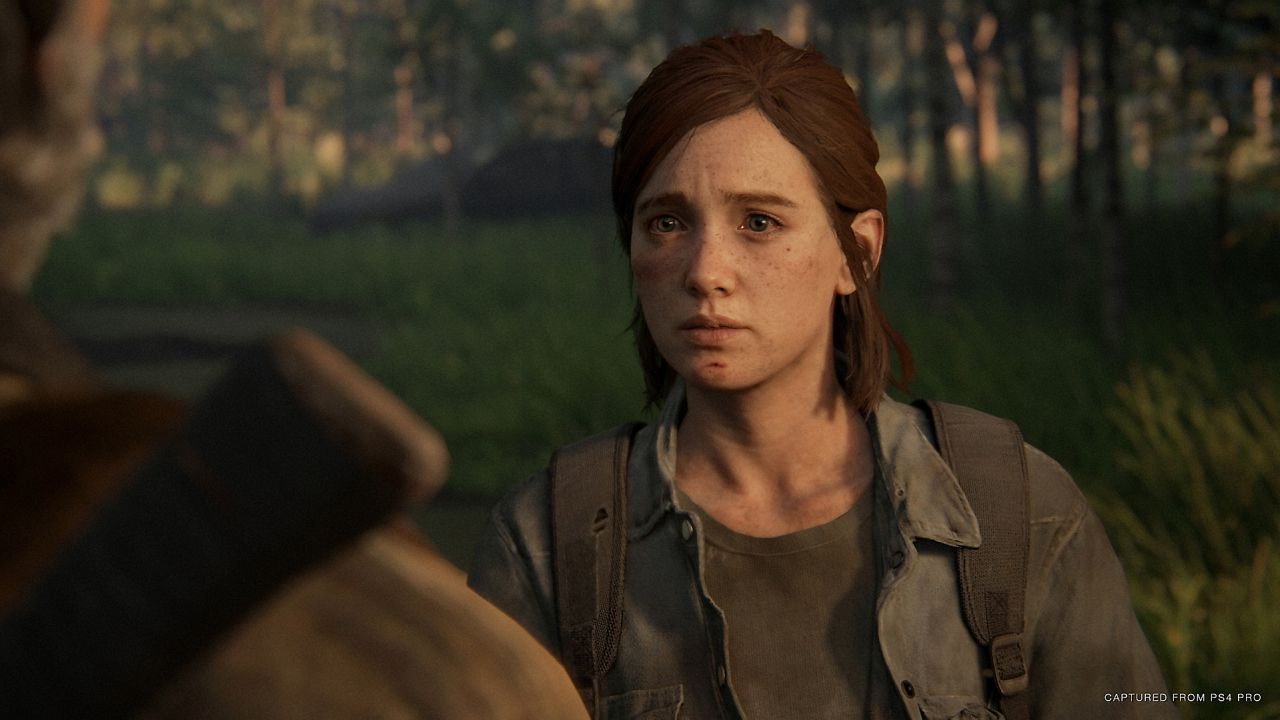

You no longer have to manually craft a shiv, since Ellie upgraded to a permanent pocket knife.

Enemies respond in more tactful ways, flanking you and using dogs to help sniff out your location. Part II’s gunplay is smoother and tighter.

The gameplay has also been refined in ways that address nearly every critique that I harbor towards the original game. It stands at the peak of what the Playstation 4 has been capable of, completely dwarfing its predecessor in every conceivable way – apart from narrative. When scrutinizing the technical components of this sequel, practically any praise that could be aimed at well-executed game design could be found within The Last of Us Part II. Simple gestures like Ellie covering her breath in tense situations similarly sell the protagonist’s character model as well.

This sophistication most notably carries over into animations, with an unbelievable amount of contextual reactions of the game’s multiple characters such as Dina, Ellie’s partner, scavenging a shop alongside the player instead of just wandering about. Naughty Dog is nearly unrivaled in environmental creation – Uncharted: The Lost Legacy being a paragon of this proficiency – and thus it is no surprise that The Last of Us Part II lives and breathes design sophistication. The first thing to be said in praise of The Last of Us Part II is the staggering attention to detail throughout the entirety of the game. Moments in this game are exceptional, thus the devil deserves to be given its due before exorcising it. Unfortunately, that disturbing and abusive behavior has been conflated by Naughty Dog – and Neil Druckmann in particular – with respectful criticism of the game itself, notably the writing and pacing issues that I personally found grating. Furthermore, the sort of hate that is being leveled at the game itself is primarily homophobic, misogynistic, and transphobic in nature – attitudes beneath contempt. It’s disgusting that Naughty Dog’s members who worked on the game have received hateful and threatening messages in response to this game. I don’t hate The Last of Us Part II for the commonly cited reasons that circulate around the internet. It was the most anticipation I had felt towards a game since Death Stranding launched, and that’s what made the gut-punch of playing it unbearable. Along the way to the release of Part II, I avoided ubiquitous plot leaks but was aware of the controversy and backlash from those who had been exposed to the story details. Despite my fondness for that nearly perfect ending, I immediately lapped up the announcements and press events and trailers leading up to the release of The Last of Us Part II, for it’s so easy to want more from an intellectual property you care a lot about. The ambiguity of Ellie’s final word, “Okay,” before the credits rolled earned The Last of Us a top spot for best video game endings of all time. I loved the original Last of Us despite the story far outshining the gameplay, but thought it didn’t need a sequel. The Last of Us Part II is one of the toughest gaming experiences I’ve ever endured, and writing about that experience is equally difficult.


 0 kommentar(er)
0 kommentar(er)
